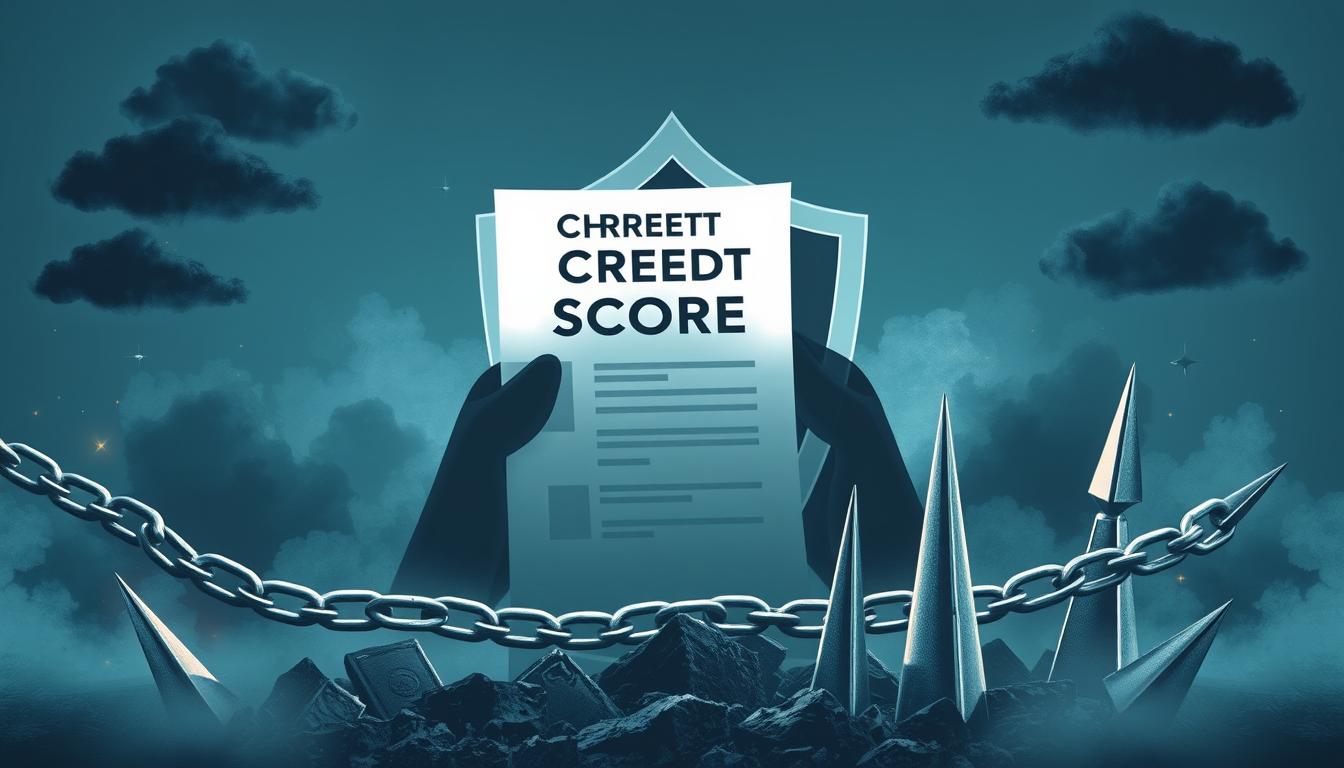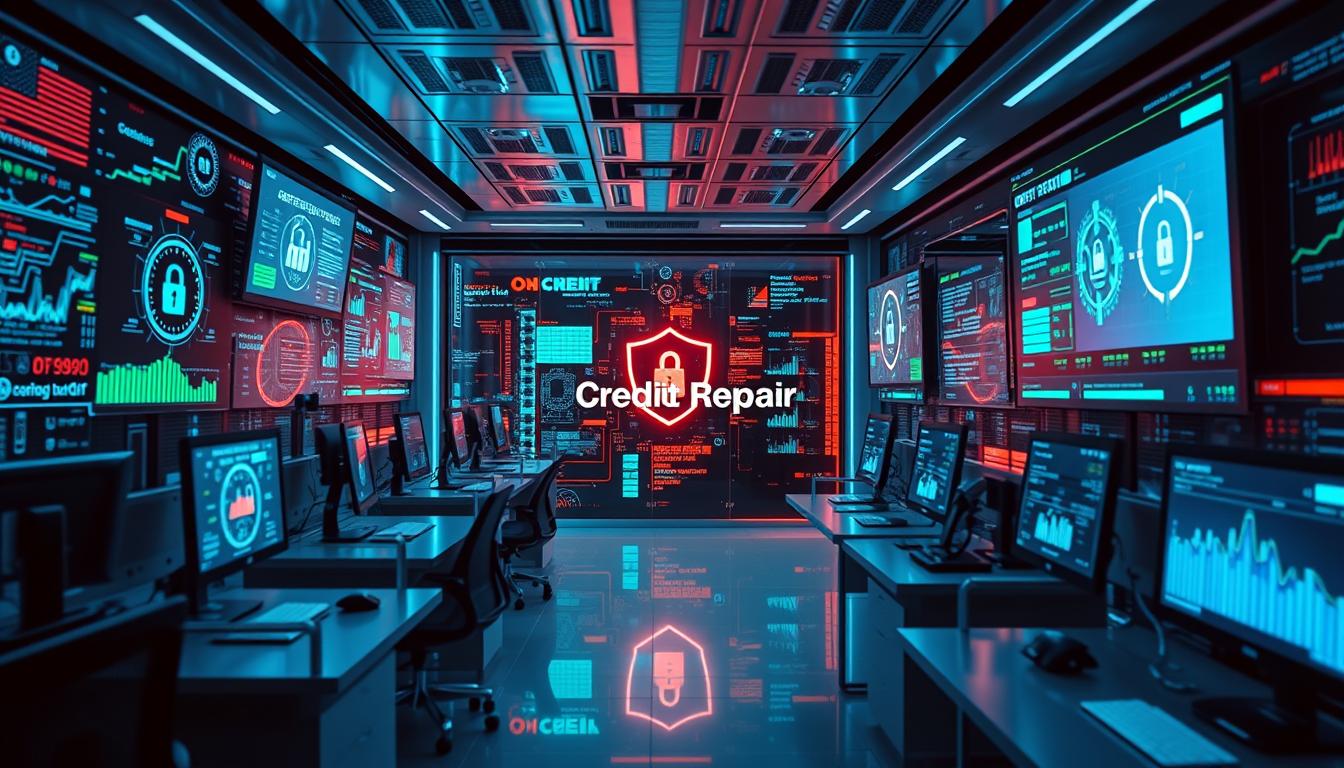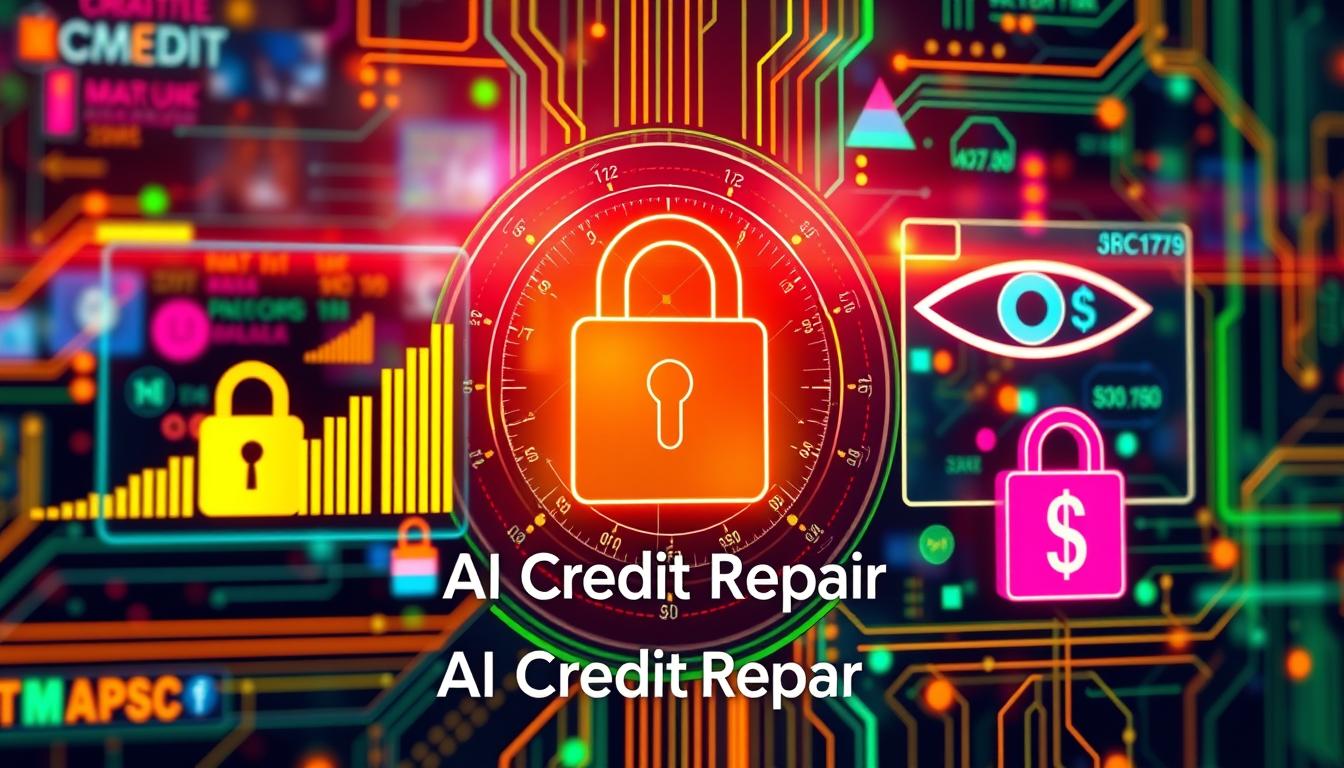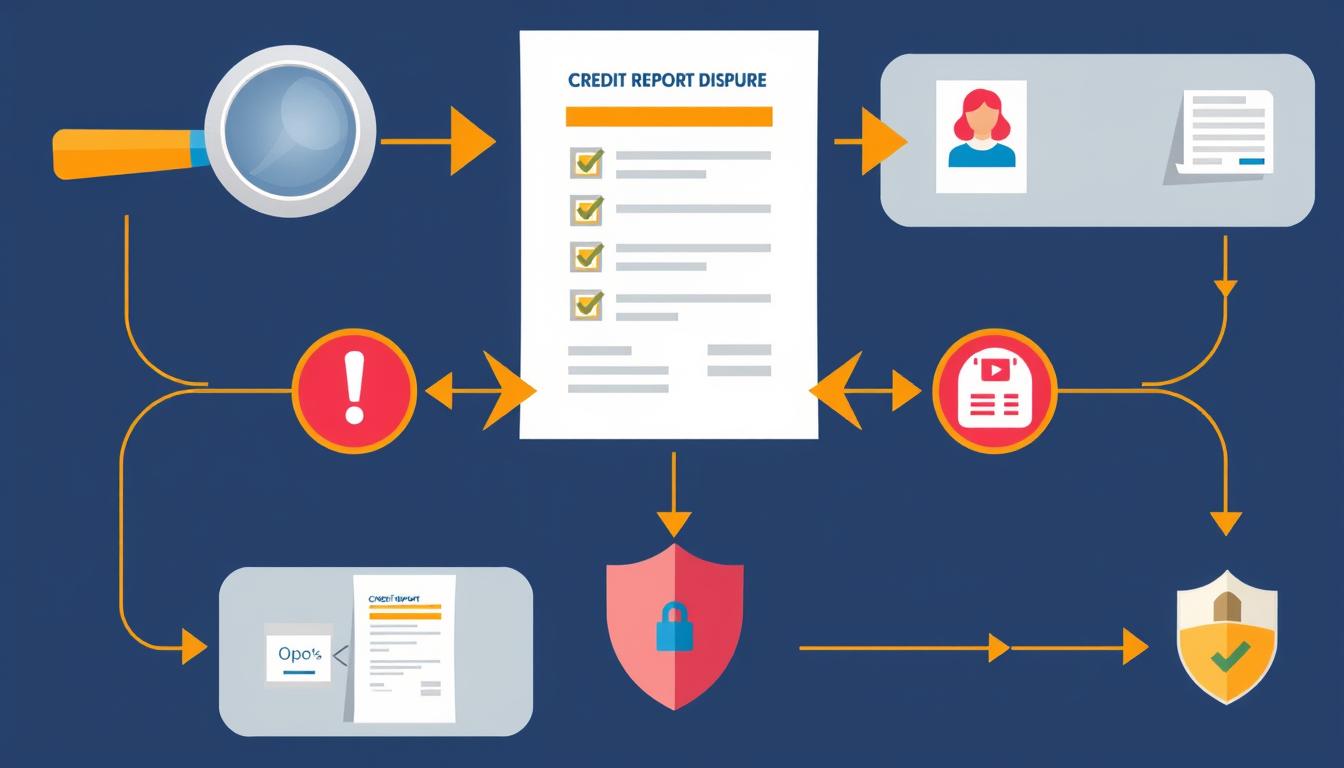Your credit score greatly affects your financial opportunities. It can help or hinder your chances for loans, mortgages, and even jobs. Credit score defense is crucial for your financial health.
This approach actively protects your credit profile. It involves understanding good credit, identifying threats, and taking steps to monitor your score. By doing so, you can secure your financial future.
Key Takeaways
- Understand the significance of a strong credit score and how it impacts your financial well-being.
- Recognize the potential threats to your credit score, such as identity theft and errors in credit reporting.
- Learn the process of regularly reviewing your credit report and identifying inaccuracies or discrepancies.
- Explore the strategies and tools available for disputing errors and maintaining a good credit score.
- Discover the benefits of proactive credit monitoring and identity theft protection services.
Introduction to Credit Score Defense
Your credit score is vital in today’s financial world. It affects your ability to get loans, credit cards, and even jobs. Various threats can harm your credit score and financial well-being.
The Importance of Maintaining a Good Credit Score
A good credit score offers better interest rates and loan terms. It reflects your creditworthiness and impacts housing, car purchases, and job opportunities. Aim for a credit score in the good to excellent range.
Common Threats to Your Credit Score
Several factors can easily harm your credit score. Here are some common threats:
- Identity theft: Fraudulent activities can severely damage your credit score.
- Inaccuracies on your credit report: Errors can lower your score and cause financial problems.
- Financial mistakes: Late payments and high credit card balances can hurt your credit score.
Recognizing these credit score threats is key to protecting your credit. Taking action to defend your score is crucial.

Understanding credit score importance and threats helps safeguard your financial future. Your credit score can be a powerful asset with proper care.
Understanding Credit Reporting Agencies
Credit reporting agencies, or credit bureaus, are key players in the credit reporting process. They collect and share information about consumers’ credit histories. Experian, Equifax, and TransUnion are the three major agencies in the United States.
These credit reporting agencies are vital to the credit report process. They gather data from lenders, creditors, and public records. This creates detailed credit report information on individual consumers.
Lenders and landlords use this data to judge creditworthiness. They make decisions about credit approvals and interest rates based on this information.
The credit bureaus collect payment history, credit use, and credit inquiries. They also include public records like bankruptcies or foreclosures. This credit report information forms a credit report, showing a person’s financial history.

Knowing how major credit reporting agencies work is crucial for good credit. It helps you protect your financial health. By understanding the credit report process, you can watch your credit report information closely.
This knowledge allows you to spot and fix any errors that may pop up. It’s a key step in maintaining a strong credit profile.
Monitoring Your Credit Report
Keeping an eye on your credit report is vital for financial health. Regular checks help spot mistakes that could hurt your credit score. This hands-on approach lets you take charge of your credit standing.
Reviewing Your Credit Report Regularly
Check your credit report at least once a year. Do it more often if you suspect something’s off. By staying on top of your credit report review, you ensure all info is correct and current.
Identifying Errors and Inaccuracies
When looking over your report, watch for credit report errors or inaccuracies. These might include wrong account details or payment histories. Spotting issues early is key to protecting your credit score.
Identity theft signs are also important to catch. If you find any credit report errors, act fast to dispute them. This helps keep your report accurate and safeguards your credit score.

“Regularly monitoring your credit report is the best way to catch any errors or inaccuracies that could be harming your credit score.”
Disputing Errors on Your Credit Report
A good credit score is crucial for financial health. Errors on your credit report can harm your standing. The credit report dispute process helps fix these inaccuracies.
The Dispute Process
Spot an error on your credit report? Start a credit report dispute. Contact the credit agencies and provide proof. They must investigate and respond quickly.
The credit report error correction process has several steps:
- Obtain a copy of your credit report from each of the three major credit bureaus: Experian, Equifax, and TransUnion.
- Carefully review the report and identify any credit report disputes you wish to file.
- Gather supporting documentation, such as billing statements, payment records, or correspondence with creditors.
- Submit your credit report dispute in writing to the relevant credit reporting agency, either by mail or online.
- The agency will investigate the disputed items and provide a response within 30-45 days.
- If the agency agrees with your dispute, they will correct the error on your credit report.
Know the credit report dispute process. Take action to protect your credit score. Ensure your financial info is accurate.

| Step | Description | Timeframe |
|---|---|---|
| 1. Initiate Dispute | Contact the credit reporting agency and provide documentation to support your claim | Immediately |
| 2. Investigation | The agency will investigate the disputed items | 30-45 days |
| 3. Resolution | The agency will provide a response, and if the dispute is valid, they will correct the error on your credit report | Within 30-45 days |
Take steps to correct credit report errors. Ensure your report shows true financial history. Protect your credit score and financial health.
What Is Credit Score Defense?
Credit score defense shields your financial reputation from potential threats. It’s vital to protect your personal info in our digital world. This approach helps you fight identity theft and credit report mistakes.
Proactive Measures to Protect Your Credit Score
A good credit score opens doors to better interest rates and financial opportunities. Here are some ways to defend your credit score:
- Monitor your credit report regularly: Check your credit report from the three major credit bureaus (Experian, Equifax, and TransUnion) at least once a year to identify any inaccuracies or suspicious activity.
- Set up credit monitoring alerts: Utilize credit monitoring services that can notify you of changes to your credit profile, such as new account openings or credit inquiries, allowing you to address potential issues promptly.
- Dispute errors and inaccuracies: If you find any errors or inaccuracies in your credit report, initiate a dispute process with the credit bureaus to have them corrected, as these can negatively impact your credit score defense.
- Practice good financial habits: Maintain a healthy credit utilization ratio, make payments on time, and limit new credit applications to demonstrate responsible proactive credit management.
These steps will help you protect your credit score effectively. Your financial future depends on staying vigilant. By being proactive, you can secure your financial well-being.
Strategies for Credit Score Defense
A healthy credit score is vital for financial well-being. It helps secure favorable loan terms. Let’s explore strategies to defend your credit score and protect your financial future.
Good financial habits and credit monitoring services can be powerful tools. They help safeguard your creditworthiness and financial stability.
Maintaining Good Financial Habits
Developing good financial habits is key to defending your credit score. These habits can significantly impact your creditworthiness.
- Paying all your bills on time, every time. Late payments can significantly damage your credit score.
- Keeping your credit card balances low. Experts recommend keeping your utilization rate below 30% of your available credit limit.
- Limiting the number of credit inquiries on your report. Too many hard inquiries can negatively impact your score.
- Diversifying your credit mix by having a variety of account types, such as credit cards, loans, and mortgages.
Using Credit Monitoring Services
Credit monitoring services offer an extra layer of protection. They help you stay on top of your credit profile.
These services provide valuable insights into your credit health. They can alert you to potential issues before they become serious problems.
- Regularly review your credit report for any errors or signs of identity theft.
- Receive alerts on changes to your credit profile, allowing you to address issues promptly.
- Understand the factors influencing your credit score and work towards improving it over time.
Proactive credit management and monitoring services work hand in hand. Together, they form a strong defense for your credit score.
This approach helps maintain your financial well-being. It also gives you more control over your financial future.
“Protecting your credit score is not just about securing better loan terms; it’s about maintaining financial freedom and independence.”
Identity Theft Protection
Identity theft poses a major threat to your credit score in our digital world. Thieves can open fake accounts and damage your credit report. It’s vital to spot the signs and know how to respond.
Signs of Identity Theft
Monitor your credit report and financial statements regularly to catch identity theft early. Watch for these red flags:
- Unfamiliar accounts or credit inquiries on your credit report
- Unexplained charges or activities on your bank or credit card statements
- Receiving bills for products or services you didn’t purchase
- Errors in your personal information, such as your name, address, or Social Security number
Steps to Take if You’re a Victim of Identity Theft
Quick action is key if you suspect identity theft. Follow these steps to limit the damage:
- Contact your credit card issuers and financial institutions to report the fraudulent activity and request that the affected accounts be closed.
- Place a fraud alert or freeze on your credit reports with the three major credit reporting agencies: Experian, Equifax, and TransUnion.
- File a report with the Federal Trade Commission (FTC) and obtain an identity theft affidavit.
- Report the identity theft to your local law enforcement agency and provide them with a copy of the FTC identity theft affidavit.
- Dispute any errors or unauthorized items on your credit report and monitor your credit closely going forward.
Stay alert and act fast to protect your credit score from identity theft. Your quick response can make a big difference.
Keep a close eye on your financial accounts and credit report. Identity theft protection is crucial for safeguarding your financial well-being.
Credit Repair Services
Professional credit repair services can help address credit score issues. These companies have expertise to navigate the complex credit reporting system. They can identify and dispute errors on your credit report, improving your score over time.
Reputable services focus on transparency, customer service, and results. They develop customized plans for your unique financial situation. Their personalized approach provides guidance to build a strong credit profile.
Research a company’s track record before engaging their services. Look for customer reviews and regulatory compliance. Choose established companies with proven success in resolving credit issues.
A trustworthy provider can help you navigate credit reporting complexities. They’ll assist you in regaining control of your financial future. With their help, you can unlock new opportunities and improve your financial standing.

